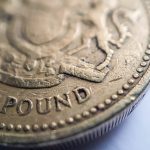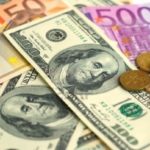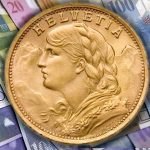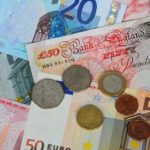The yen snapped three days of advances against the US dollar, following a report that showed Japans economy grew less than analysts predicted, fueling speculation Bank of Japan may boost its stimulus program, weakening the nations currency further.
USD/JPY hit a session high at 101.99 at 08:15 GMT, after which consolidation followed at 101.93, adding 0.09% for the day. Support was likely to be received at February 6th low, 101.25, while resistance was to be met at February 14th high, 102.41.
Yens demand was pressured after Japans Cabinet Office reported that the nations preliminary gross domestic product expanded at an annualized 1% pace in the fourth quarter, confounding analysts expectations for a 2.8% increase and after a 1.1% advance in the previous quarter.
Last week Japan’s core machinery orders declined by 15.7% in December, the most since 1998. In November the bookings increased by 9.3%, while analysts predicted December’s core machinery orders will drop 3.8%. On year-over-year basis, core machinery orders slowed their growth to 6.7% in December, almost three times less than analysts forecast and after a 16.6% advance in the previous month.
There are growing speculations that BoJ will have to increase the scale of its asset-purchasing program this year, which weighs on yen’s demand. Bank of Japan has been purchasing more than 7 trillion JPY (68.4 billion USD) of government bonds each month in its struggle to achieve 2% inflation in two years since April 2013.
In a Japan’s Nikkei newspaper interview, cited by Bloomberg, policy board member Takahide Kiuchi said last week that: “Additional monetary easing to offset the effect of a sales tax increase in April may have negative side effects”.
Effective from April, the sales tax will rise to 8% from the current 5% level.
The yen devalued 18% against the US dollar last year, the most since 1979, but in January the currency rebounded 3.2% as a slump in emerging markets, fueled demand for haven assets, such as the yen.
A Bloomberg News survey of 35 economists, showed an unanimous forecast that the BoJ will expand its monthly bond purchases program worth 7 trillion yen, with only two of the respondents predicting the central bank will achieve its inflation goal by the target period, April 2015.
Meanwhile, a survey, conducted by Thomson Reuters and the University of Michigan, showed on Friday that US consumers retained their optimism regarding nation’s economic development in the middle of February. The preliminary reading of the corresponding index of consumer confidence came in at 81.2, which confirmed the final value reported in late January. The median estimate of experts pointed that the index will probably slow down to a reading of 80.5 this month. The data suggested that consumers might be able to increase their spending, after severe winter in January adversely influenced their expenditures.
However, demand for the US dollar was dampened after a report by the US Federal Reserve revealed that the US industrial output declined by 0.3% in January, capping the first monthly drop since April, defying analysts’ predictions for a 0.2% advance and after a 0.3% increase in the preceding month.
US markets are to remain closed today due to a federal holiday honoring the birthday of the first President of the country, George Washington.
Elsewhere, GBP/USD touched a session high at 1.6823 at 02:00 GMT, also the pair’s strongest since November 2009, after which the cross erased daily gains to trade little changed at 1.6746 at 09:20 GMT, losing 0.02% for the day. Support was likely to be received at February 14th low, 1.6645, while resistance was to be encountered at November 18 high, 1.6846.





